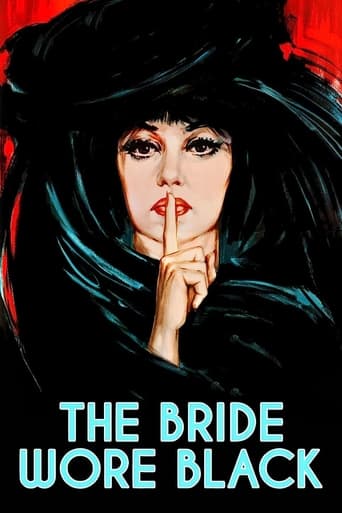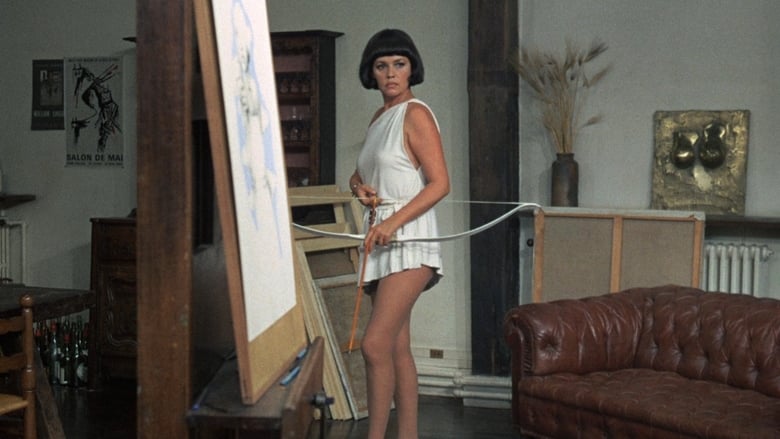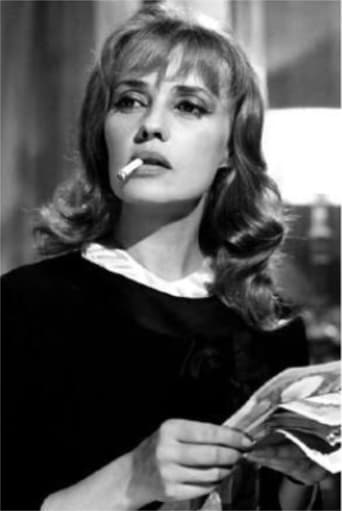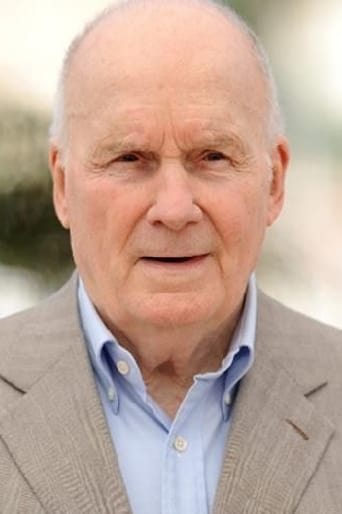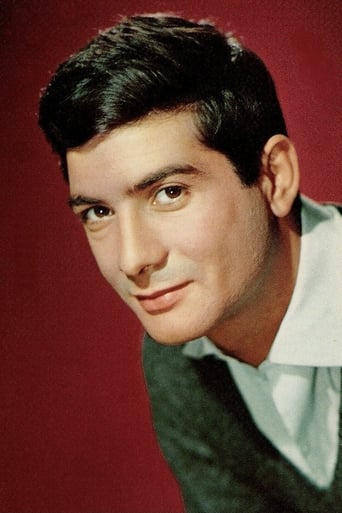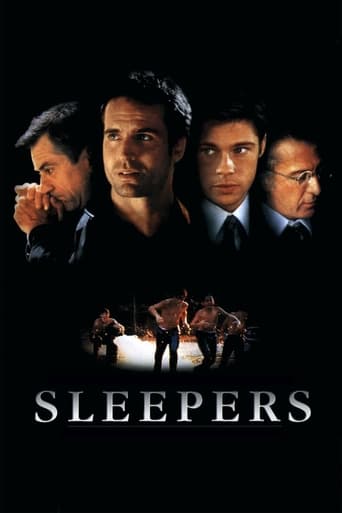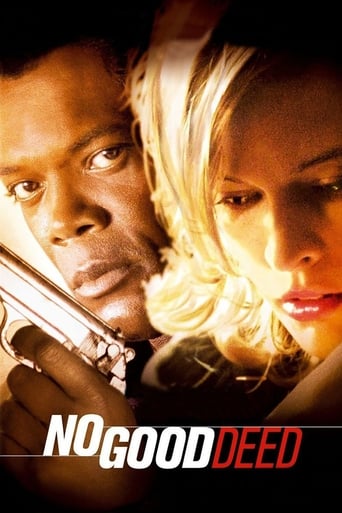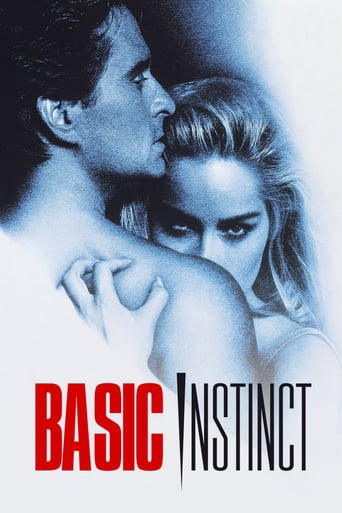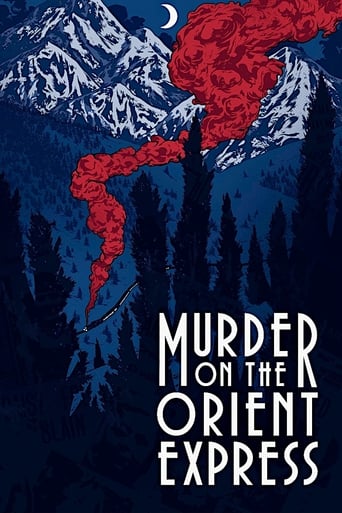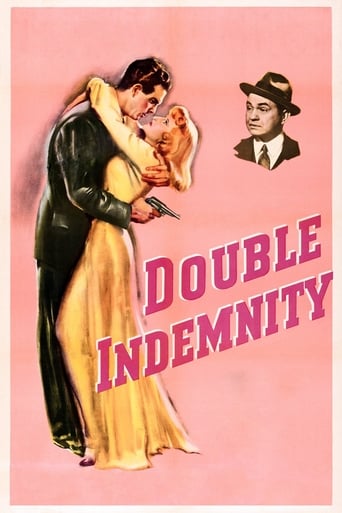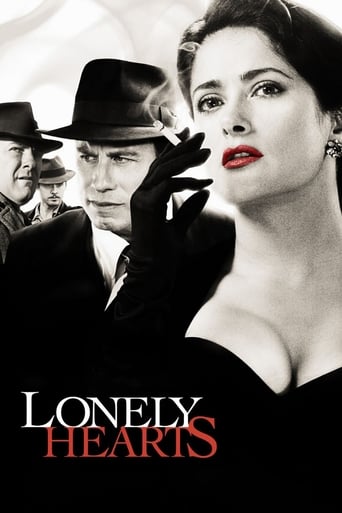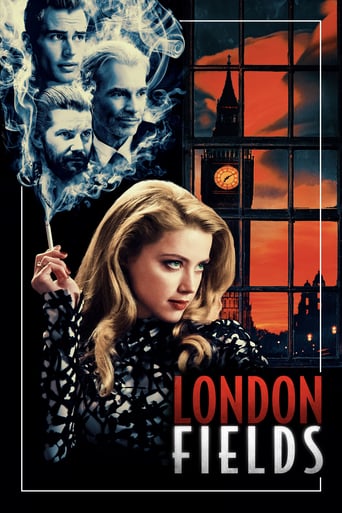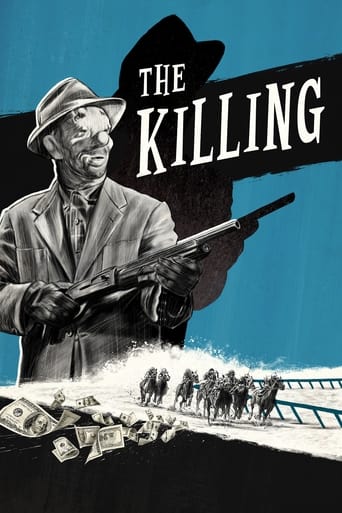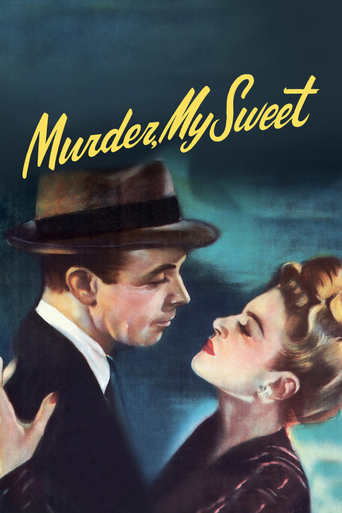The Bride Wore Black (1968)
Julie Kohler, whose husband was inexplicably shot dead on the church steps after their wedding, is prevented from suicide by her mother. She leaves the town to track down, charm and kill five men who do not know her.
Watch Trailer
Free Trial Channels
Cast


Similar titles
Reviews
SERIOUSLY. This is what the crap Hollywood still puts out?
It's a mild crowd pleaser for people who are exhausted by blockbusters.
Blending excellent reporting and strong storytelling, this is a disturbing film truly stranger than fiction
A film with more than the usual spoiler issues. Talking about it in any detail feels akin to handing you a gift-wrapped present and saying, "I hope you like it -- It's a thriller about a diabolical secret experiment."
IMDb classifies this as "Crime, Drama, Mystery". If one insists to call this a crime movie, then I would have to say that it is extraordinarily naive and unrealistic; the plot is essentially juvenile. Compare it to, say, Munich, that is also a "methodological revenge movie". In the latter, every step is realistically planned whereas in this movie every action in childish . The guy and the scarf? The poison through the cork? The duct tape? The arrow? The knife? Gimme a break.However, let's take out the "crime" characterization, and replace it by "melodrama". Then we get an entertaining movie with great performance by Jeanne Moreau.So, calling this a mystery-melodrama, we can sit back, relax, and enjoy the show.P.S. In every movie. especially in French ones, every killer easily gets hold of a poison whose couple of drops are fatal. The only poison I can get is a dosage of large fries at a local fast food restaurant.
François Truffaut has always been one of the most famous admirers of Alfred Hitchcock, so it was only natural for him to make a film that is intended purely as a homage to his colleague. The elliptically presented plot is unlike any Hitchcock plot I, at least, am aware of; it's mostly the sophisticated camera work and the superb, ingenious music score by Bernard Herrmann that remind you of Hitch. To be honest, the film seems a little flat at first (the first two murders are not too special), but it gets better, and the ending is just about perfect. Jeanne Moreau, although arguably miscast, gives an excellent performance, and at least three of the men manage to create complete characters in a short amount of time. *** out of 4.
To really take in this film, you have to watch it consciously disassociating yourself from the legend of genius that is the legacy of Francois Truffaut. So this is Truffaut's homage to Hitchcock?! This is a script a boyish, 12 year old Hitch might have written, read the finished product through once, and thrown it giggling into the wastebasket. The Bernard Hermann score seems a melodramatic intrusion, musical phrases and tonal pastiche; something that Hermann pulled from a grab bag of discarded "mood" compositions. Hitchcock females played detached, cool blooded seductresses. Here Truffaut has deformed this template presenting Jeanne Moreau as a wooden female mannequin exclusively captivating men simply through displaying her couture wardrobe and coiffed hair. Hitchcock's women were aloof allures, but each invariably had vulnerabilities threatening to surface. We see no cracks like this in Moreau's character; she's a stylish popsicle. All this doesn't speak well for the male sex, each of whom immediately fall for her like dumb animals aroused by the scent of a woman; close proximity is an open call to an entanglement of bodies in heat. This simplistic stereotype of male and female is not wholly incongruous with the ambiguous, improbable plot line. Julie Kohler, the bride, while not left at the alter, is left a widow minutes after the ceremony, her new husband falling dead on the church steps, killed by a shot gun blast from out of nowhere. Her devastation is total. Dissuaded from suicide by her mother, she plots a vendetta against those responsible for the killing. Whether or even how she learns of the circumstances behind her husband's death, or discovers the identities of the five men responsible is never explained. She goes about her business of being a femme fatale killing machine programmed for revenge. This is a silly, self-indulgent offering from that most self-indulgent of French New Wave film directors, Francois Truffaut.
I watched this just last night on TCM for the first time. I was sucked all the way in by the film's first ten minutes. Jeanne Moreau is nothing short of brilliant as the wan seductress who lures her victims to her death. There also seems to be a subtext of her wanting to see how pathetic these guys are in the way they treat and regard women. It is as if it is somehow fulfilling to her sense of justice that their lives should be taken not only because of their roles in her groom's shooting and cover-up, but because they are scum compared to the perfect gentleman and best friend that was her bereaved. It is fascinating watching her elicit the desired lust and reactions from her victims as she goes about coldly executing their demises. The music is brilliant and so is the pacing - at least until the third murder when the politician is killed. This is when the politician recounts - at least for us as the audience - what really happened. In some more of the duality that fascinates French directors, the politician describes the death as an accident - which he obviously believes it was. But, we see, the bald, rough-hewn, and obnoxious man not seeming as benign as his colleagues who used these get-togethers for male-bonding and escapism. Despite the narration, it appears that he took dead aim at the groom. Everything about him seems different than the other four unwitting co-conspirators. At least that's the way I saw it - quite different from almost all the other IMDb reviewers.This is why I found the wrap-up of this movie so utterly frustrating. If - as it appears to me - he was the EVIL one among the otherwise feckless crew, then I feel especially robbed of being deprived of her confrontation with him. It is as if Truffaut's joke on us is that in a movie about a woman seeking her own type of "perfect justice", there is no justice when it comes to the execution of the truly guilty one.What was Truffaut truly trying to say? I doubt that we'll ever know. Robert Osborne on TCM said that one of the reasons Truffaut disowned the film is that he had incredible creative differences with his cinematographer - the same fellow he had worked harmoniously with in the past. So much so, that in the last scenes shot for the film (unknown if they were the last scenes of the movie, or as is more typical, earlier scenes), he had Jeanne Moreau direct the scenes so he could walk out and not have to face the vulgarian.For me, this discontinuity had a definite deleterious effect on the finished (or unfinished) product. Is the spartan ending where we only hear the killer's demise in a way that appears rather sloppily engineered compared to her brilliant set-ups of all the others a brilliant philosophical statement by Truffaut or the self-indulgent wrap-up of an artist acting like a spoiled brat because he couldn't get the cooperation he felt he needed? To me, it feels a lot more like the latter and left me cold and disappointed. To each his own.

